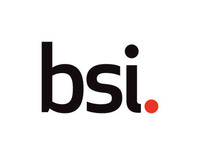
-
BSI’s Supply Chain Risk Insights Report 2023 identifies key global trends in how organizations managed their supply chains and the behaviors observed in 2022
-
Strong attention to national governments’ rapidly evolving regulatory agendas identified as a key differentiator for successful organization in 2023
-
Report outlines six business imperatives to help decision-makers succeed in the face of global disruption
BSI, the business improvement and standards company and leading global provider of supply chain intelligence, unveiled its annual Supply Chain Risk Insights Report which indicates organizations that manage supply chain disruption effectively in 2023 will be best equipped to weather financial challenges ahead.
In terms of major trends within the supply chain environment, the report observed that thefts from hijacking have fallen as a proportion of cargo theft from 24.4% to 17.0%. These are now second to theft from facilities, which now account for more than a quarter of total thefts, which saw year-to-year increase from 24.2% to 26.0%. Food and beverages remain the most commonly stolen commodity and the report highlighted that this has increased considerably in 2022, rising share by 2.8%. The proportion of automotive and fuel thefts is also rising, whereas the proportion of electronics, agriculture and construction theft has fallen. While hijacking has also fallen as a proportion of cargo theft, BSI observed that this continues to exert a real impact on global supply chains – with food, pharmaceuticals and construction materials most effected.
Read More: EQ Technologic Joins AWS Partner Network
Exacerbated by the Russia–Ukraine war, but also an enduring legacy of COVID-19-related shutdowns and the resulting prolonged shortage of key manufacturing components, unprecedented price inflation has awakened governments to the importance of global supply chains to national interests. This has led to the launch of new legislation such as the CHIPS Act and the Bipartisan Infrastructure Law in the US, and increased GPDR regulations across the EU, the combination of which is placing greater accountability on suppliers and purchasers. Government intervention spans efforts to bolster domestic supply chains, reduce carbon emissions, and enhance governance.
Monitoring rapidly changing regulatory agendas is highlighted as one business imperative that decision-makers need to be aware of if organizations are to succeed in the face of the ongoing global disruptions.
The report identifies five additional imperatives that organizations will need to address to enable future growth and provide financial sustainability:
- Leadership: Supply chain continuity requires investment from the top down and what organizations really need right now is strong buy-in from top level leadership
- Digital: Organizations need to urgently address their digital risk; 73% of organizations are significantly concerned about the risks posed by the digitization of supply chains. However, not one organization has solved for this threat
- Self-knowledge: Organizations need to invest in tools and technology which help form a comprehensive understanding of their supply chain environment, such as data analysis, IoT, cloud computing, information security and predictive analysis
- A tailored approach: An awareness of the different, unique challenges facing each sector’s supply chain is key
- New technologies: Data, the metaverse, and cybersecurity are segments of technology that will differentiate organizations’ approaches to building strong supply chains
Read More: SalesTechStar Interview with Stuart Croft, Chief Operating Officer at Blackthorn.io
“2022 saw volatility in global supply chains that many would never have expected in their lifetime. Successive crises, including a global pandemic followed by a war in Europe, have resulted in continued uncertainty on many fronts and have demonstrated to governments the benefit of ensuring a robust global supply chain,” said Susan Taylor Martin, Chief Executive of the British Standards Institution (BSI). “Given the turbulence of the last twelve months, 2023 will be an important watershed for many organizations – with those that successfully manage their supply chain risks being more likely to thrive.”
Jim Yarbrough, Global Intelligence Program Manager at BSI, said: “The threats facing global supply chains vary from region to region and are distributed unequally, but in the face of rampant global price inflation, all countries ended 2022 in conditions more precarious than they were at the outset. Without intervention, businesses will see dramatic impacts on their bottom line, meaning that discussing supply chain issues at the C-suite level can help to ensure investments are funneled to suppliers, building resilience to threats and supporting financial sustainability.”





















